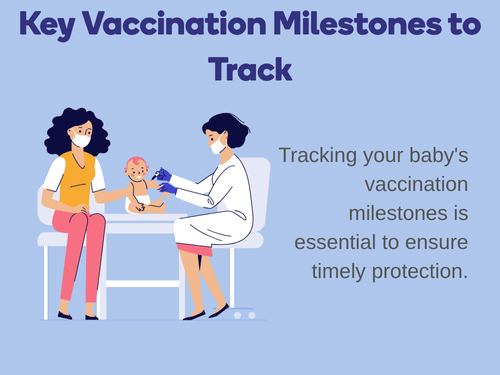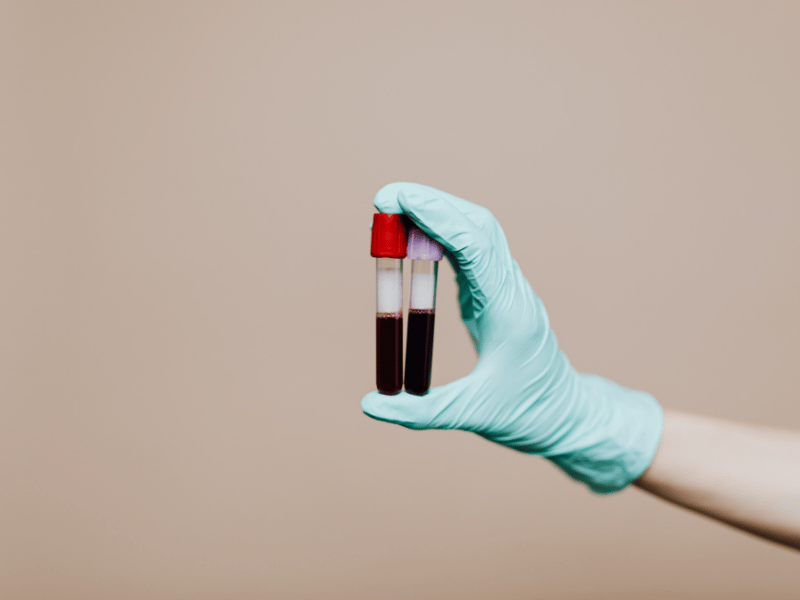As a parent, keeping track of your baby’s developmental milestones is crucial. One of the most significant aspects of this journey is ensuring that your baby receives the proper vaccinations. The importance of baby vaccinations can’t be overstated—they protect your little one from serious, preventable diseases and contribute to public health.1 In this article, we will explore the essential milestones for baby vaccinations and why they matter.
Understanding Baby Vaccinations
What Are Baby Vaccinations?
Baby vaccinations are doses of medicine that help build immunity against various infectious diseases. These vaccines contain weakened or inactive parts of the germ that causes the disease. When administered, they stimulate the immune system to recognize and fight the actual pathogens if your child encounters them later.
Vaccinations occur through injections, oral doses, or nasal sprays, depending on the specific vaccine. The World Health Organization recommends several vaccinations starting from birth through the first few years of life. These vaccines include protections against diseases such as measles, mumps, rubella, hepatitis B, and diphtheria.
Why Vaccinations Are Important for Your Baby
Vaccinations are vital for protecting not just your child but the entire community. When a child receives a vaccine, their immune system learns to fight the disease without getting sick. This way, vaccinated children are less likely to contract the illness and less likely to spread it to others, especially those who cannot be vaccinated due to health issues or allergies.2
Vaccines also help in eradicating diseases. For example, thanks to widespread vaccination programs, diseases like polio have been nearly eliminated in many parts of the world. When vaccination rates drop, diseases can resurge, posing significant health risks, particularly for vulnerable populations. Ensuring your baby is vaccinated is a step toward creating a healthier environment for everyone.
Key Vaccination Milestones to Track

Tracking your baby’s vaccination milestones is essential to ensure timely protection. Below are the key vaccination milestones every parent should be aware of.
First Vaccination at 2 Months
The first round of vaccinations typically occurs at two months.3 During this visit, your baby will receive vaccines for:
- Diphtheria, tetanus, and pertussis (DTaP)
- Hepatitis B (HepB)
- Haemophilus influenzae type b (Hib)
- Polio (IPV)
- Pneumococcal conjugate vaccine (PCV)
- Rotavirus vaccine (RV)
This first wave of vaccinations lays the groundwork for your child’s immune protection.
Boosters at 4 and 6 Months
Following the initial vaccinations, your baby will need booster shots at four and six months. These boosters reinforce the immunity acquired from the first dose and are crucial for building a robust defense against these serious diseases. Missing these booster shots can leave your child vulnerable to infections that could otherwise have been prevented.
Vaccines at 12 Months
By the time your baby reaches one year, several additional vaccinations are recommended. At this stage, the following vaccines are usually administered:
- Measles, mumps, and rubella (MMR)
- Varicella (chickenpox)
- Hepatitis A (HepA)
This is also the time to update vaccinations that may have been received earlier.
Common Myths About Baby Vaccinations
Understanding the facts about vaccinations can help you make informed decisions for your baby. Unfortunately, misinformation can spread quickly, leading to confusion around important health issues.
Debunking Vaccination Fears
One common myth is that vaccinations can cause the diseases they aim to prevent. This is not true. Vaccines contain weakened or inactive forms of the virus or bacteria and are designed to stimulate an immune response without causing disease. It’s crucial to rely on reputable sources rather than myths when making health decisions.
Understanding Side Effects
Another widespread misconception is that vaccines can cause severe side effects. Generally, side effects from vaccinations are mild and short-lived, such as a sore arm or mild fever. Serious side effects are rare.4 The benefits of vaccinations—protection from preventable diseases—far outweigh the relatively minor risks associated with vaccines.
What to Expect During Vaccination Visits
Preparing Your Baby for Their Shots

Preparation can make vaccination visits smoother. Before the appointment, ensure that your baby is well-rested and fed, as this can help minimize irritability. Bring along a comfort item, such as a favorite toy or blanket, to soothe them during the process.
Discuss your concerns with the healthcare provider ahead of time. They can address any questions you may have about the vaccines and what to expect during the visit.
Post-Vaccination Care Tips
After the vaccination, keep an eye on your baby for any reactions, which are generally mild. Some parents find that giving their baby a dose of acetaminophen can help manage discomfort if needed, but consult your healthcare provider first. Ensure your baby stays hydrated and relaxed—the vaccination visit is often more stressful for parents than for the child.
Where to Get Vaccinated in Clementi
Finding a reliable clinic for vaccinations is vital for your baby’s health.
Choosing the Right Clinic
In Clementi, the Love & Joy Family Clinic provides comprehensive childhood vaccination services. Their experienced staff can guide you through each vaccination visit, answering any questions and ensuring a positive experience. You can easily schedule appointments online or by phone, making it convenient to keep track of your baby’s vaccination milestones.
Contact Love & Joy Family Clinic
To learn more or book an appointment, visit Love & Joy Family Clinic. It’s never too early to get informed and start your baby’s vaccination journey.
In summary, keeping track of baby vaccination milestones is essential in ensuring your child’s health and development. Vaccinations offer critical protection against potentially severe diseases and significantly contribute to community health. Don’t overlook these milestones—make appointments, stay informed, and keep your little one safe today!
- https://www.who.int/health-topics/vaccines-and-immunization#tab=tab_1 ↩︎
- https://www.hhs.gov/immunization/basics/work/protection/index.html ↩︎
- https://www.healthhub.sg/well-being-and-lifestyle/pregnancy-and-infant-health/baby-immunisation-inject-to-protect ↩︎
- https://www.cdc.gov/vaccines/basics/possible-side-effects.html ↩︎




